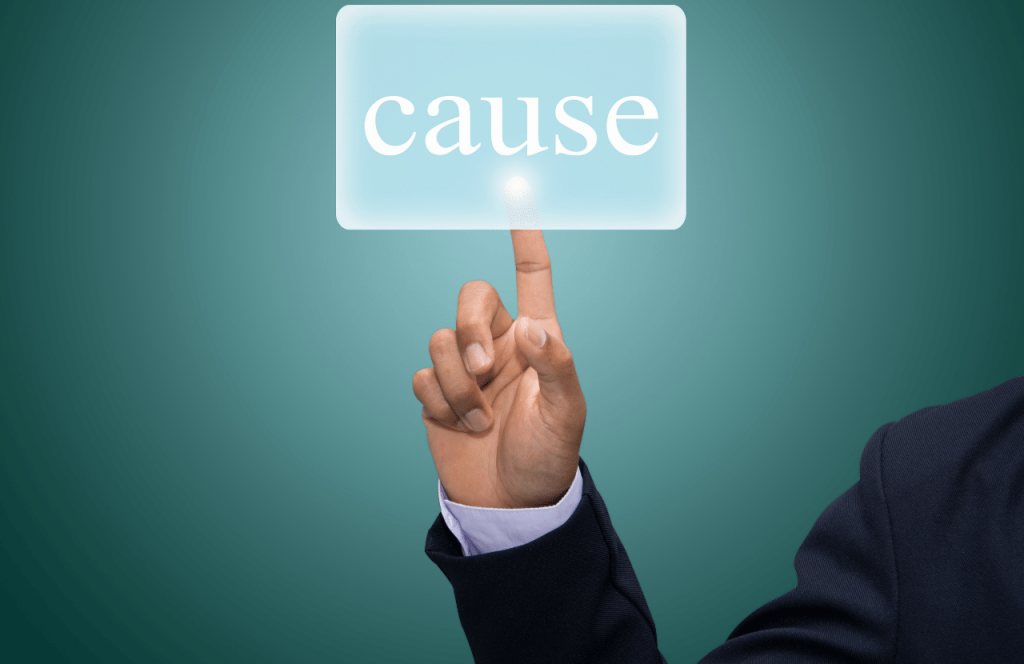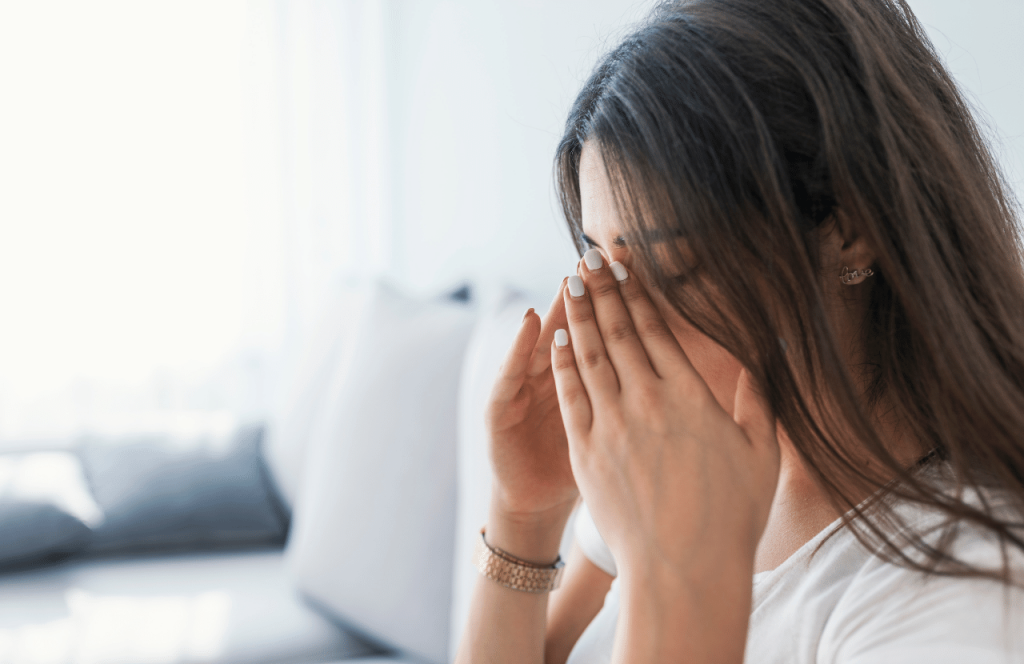The inability to have an orgasm during sex, or a markedly slower time to orgasm…is called orgasm disorder.
Orgasmic disorder can occur in both men and women and can be related to a variety of causes.
With proper treatment and remediation, it is not uncommon for people to experience orgasms during sex.
In this article, we will present the causes of such orgasmic disorders for men and women and the solutions to them.
・Troubled by the inability to feel orgasms during sex.
・Your partner may have an orgasm disorder.
・I want to know the cause of my orgasmatic disorder.
If you have any of these problems, please see to the end of this article.
Table of Contents
Can’t feel orgasms from sex or masturbation?

The symptom of not being able to properly feel orgasms during sex or masturbation is called orgasm disorder.
However, depending on your condition, it can be difficult to feel orgasms.
The key to determining if you have an orgasm disorder is whether or not you are having trouble with the symptoms for a period of time.
If it is only a temporary inability to feel orgasms, it can be any number of things, depending on the condition at the time.
Be careful not to take the situation too seriously, as it could become chronic or even worse.
What is male orgasm disorder?

The main symptom of male orgasm disorder is the inability to ejaculate at the right time.
This section will explain what exactly the symptoms are, the causes of male orgasm disorder, and how to solve male orgasm disorder.
What are the symptoms of male orgasmic disorder?
First of all, it’s important to check what symptoms fall under the category of male orgasm disorder.
There are two main symptoms that can be listed in male orgasm disorder
- Delayed ejaculation.
- Unable to ejaculate in the vagina.
Let’s take a closer look at what each of these symptoms are.
Delayed ejaculation
Some men with delayed ejaculation need 30 minutes or more of sexual stimulation to have an orgasm and ejaculate. Other men might not be able to ejaculate at all (anejaculation).
But, there’s no specific time that indicates a diagnosis of delayed ejaculation. Instead, you are probably experiencing delayed ejaculation if the delay is causing distress or frustration, or if you have to stop sexual activity due to fatigue, physical irritation, loss of erection or a request from your partner.
Delayed ejaculation is the inability or significant delay in ejaculation despite adequate sexual stimulation and a willingness to ejaculate.
The pressure can be stressful, especially if you are in the middle of sexual activity with your partner.
Delayed ejaculation can worsen and become psychogenic ED.
Unable to ejaculate in the vagina
Delayed ejaculation as well as the inability to ejaculate only vaginally is classified as an orgasm disorder. Even though ejaculation can be achieved by masturbation, with this condition, ejaculation cannot be achieved in the vagina.
This is also called vaginal ejaculation disorder and can be caused by unbalanced masturbation or other factors.
Causes of Male Orgasmic Disorder

Next, let’s find out what causes male orgasmic disorder.
Orgasmic disorders can be congenital, or they can be acquired.
So, even if you don’t have orgasmic disorder now, there is a good chance that you will develop it in the future due to the following causes.
The following are five common causes of male orgasmic disorder:
- Psychological anxiety
- Stress
- Medications
- Mental and physical problems
- Incorrect masturbation
Let’s take a closer look at the causes of each.
Psychological Anxiety
A particularly common cause of male orgasm disorder is psychological anxiety.
There are worries and anxieties that can affect sex.
Once an orgasm disorder is triggered, it can become prolonged due to the pressure of being blamed or pointed out to your partner for it.
Stress
Stress can often cause orgasmic disorders.
There are many different types of stress, such as stress caused by workloads and stress caused by relationships, but today’s business people are especially prone to stress.
This makes it difficult to feel stressed and experience orgasms as much as you would like.
Side effects from medication
If you have a pre-existing condition or an illness that is being treated and you are taking medication, it can cause an orgasm disorder.
In particular, taking antidepressants can cause orgasmic disorders.
Other medications such as sleeping pills, anti-anxiety medications, and psychiatric drugs can also cause sexual dysfunction.
Mental and Physical problems
When your body and mind are unwell for any reason, you are more likely to experience an orgasmic disorder.
There are cases in which orgasm disorders can lead to the discovery of diseases that you were not aware of, so it is recommended that you consult a doctor if you feel “different” from the way you usually feel about your orgasms.
Wrong masturbation
Wrong masturbation can also cause orgasmic disorder.
One of the most common orgasm disorders is vaginal ejaculation disorder.
For example, floor masturbation, which applies strong pressure by rubbing the penis on the floor, or using only highly stimulating masturbators, can also lead to orgasmic disturbances.
How to Solve Male Orgasmic Disorder

Let’s continue with a look at how to resolve male orgasmic disorder.
It is not difficult to cure orgasmic disorder if you try to treat and improve it in the right way.
The time it takes to fully recover is different, but you will slowly get better.
It is important not to give up or give up.
Medication Treatment
Medication is one of the best ways to treat orgasm disorder.
If you see a urologist and are diagnosed as appropriate for medication, he or she will prescribe medication to help you with your orgasm disorder.
There are several types of medications, so we won’t go into them here to ensure that you get the right treatment.
Correcting Wrong Masturbation
Approximately more than half of all orgasm disorders can be cured by fixing wrong masturbation.
You can train yourself to reduce the stimulation of masturbation and train yourself to ejaculate with weak stimulation.
This method involves patience, and if you don’t improve, you may get sick of it.
However, it is important to take a long term view to improve your orgasm disorder.
Ask your partner to help you with this.
Psychotherapy
Psychotherapy may be used in cases of psychological factors that cause orgasmic disorder.
This is when the trauma related to some kind of sexual activity or psychological strain has caused the orgasm disorder.
You will receive appropriate counseling to help you unwind the psychological factors and trauma.
If you feel that your orgasm disorder is caused by psychological factors, we recommend receiving a psychiatric consultation.
If you are not sure at the consultation stage, then a urologist is a good place to start.
What is female orgasmic disorder?

Next, let’s take a look at female orgasmic disorder.
Women’s orgasm disorder is often due to psychological factors and trauma.
Second to that, it can be just a matter of not knowing what it feels like to have an orgasm.
Here are the symptoms of female orgasm disorder, its causes and how to resolve it.
What are the symptoms of orgasmic disorder in women?
First of all, it is important to know the symptoms of female orgasm disorder.
Symptoms of female orgasmic disorder can be divided into two main categories:
- The inability to have an orgasm or a significant delay in feeling an orgasm, despite adequate sexual stimulation during sexual activity or through masturbation.
- You have never experienced an orgasm before.
Let’s take a closer look at each one.
Orgasm Delay
The inability to have an orgasm, or significantly slower, despite adequate sexual stimulation, is a relatively common symptom in many women.
Women often need more time for sexual stimulation than men in order to feel orgasms in the first place.
However, even if you take that into account, if you can’t feel an orgasm, or if it is blatantly too late (e.g., you don’t feel an orgasm after stimulating for more than an hour), you may have an orgasmic disorder.
Never experienced orgasm
The case that a person has never felt an orgasm since birth is also classified as an orgasmic disorder.
However, it is very difficult to determine whether this is due to a lack of development of the sexual cortex, or whether it is an orgasmic disorder.
Also, many people who have had little sexual experience may also have never had an orgasm.
In these cases, it is a good idea to develop your sexual organs before determining that you have an orgasmic disorder.
With the exception of the clitoris, the G-spot and the porthole are not usually organs that are sensitive to orgasms in women.
Therefore, they need to be trained to feel orgasms when they are sexually stimulated.
Causes of female orgasmic disorders

Next, let’s find out the causes of female orgasm disorder.
The three most common causes of female orgasmic disorder are.
- Psychological factors
- Trauma
- Insufficient sexual development
As with male orgasmic disorder, the basic idea is to find out what causes it and implement a solution to it.
The reasons for each of these will be explained in detail, so if you think you may have an orgasmic disorder, please try to find the cause.
Psychological Factors
Psychological factors are a very significant cause of orgasm disorder in women.
It is said that women feel orgasms in their brains in the first place, so that women’s psychology and brains are closely related to orgasms.
Therefore, if a woman is not able to open her heart up for her partner, if she has something to worry about, or if she is concentrating too much on feeling an orgasm, it becomes even more difficult for her to feel an orgasm.
What women need more than anything else to feel an orgasm is to relax their body and mind.
Therefore, if the situation does not allow them to feel orgasms, they may not be able to feel orgasms, and as a result, it may become a pressure that leads to chronic orgasmic disorders.
Trauma
Being sexually abused as a child or experiencing something scary about sex can cause orgasmic disorder.
The trauma of sexual abuse is particularly severe, and many people are unable to have sex itself.
If the trauma is the cause, it needs to be dealt with carefully.
Mental and Physical Problems
I mentioned physical and mental health problems earlier when I introduced the causes of orgasm disorder in men, but this is also true for women.
Excessive stress, depletion of the body and mind, fatigue, or illness that prevents you from experiencing orgasms can cause temporary orgasm disorder.
Be aware that this temporary orgasm disorder can also be prolonged and turn into a chronic orgasm disorder.
Orgasm comes only to a healthy body and mind.
Lack of sexual development
One of the causes of female orgasmic disorders is the lack of sexual development.
We talked about this a little bit earlier, but the organ that is usually in a woman’s vagina is quite insensitive.
It’s the place where the baby comes out in the passage during childbirth, so don’t you think it would be hard to be sensitive?
Such a vaginal organ can also be trained to feel orgasms when it is sexually stimulated.
This is called development, and sexual development may help you to get rid of your orgasmic disorder.
How to Solve Female Orgasmic Disorder

The next step is to find out how to solve orgasm disorder in women.
Based on the causes just mentioned, let’s take a look at how to improve your orgasmic disorder.
Sexual Development
If you are physically and mentally healthy and not particularly stressed and you can’t have an orgasm, you should try to develop your sexual organs.
This is the ‘training to make you feel orgasmic through sexual stimulation’ that I mentioned earlier.
You can read more about the development of the sexual zones in another article.


The time it takes to develop a sexual sensation is different for everyone.
Some people can develop in a short period of time, while others take a longer period of time.
This is something that varies from person to person, so you need to take the long view and not rush into it.
Psychotherapy
If you have been traumatized for any reason and the trauma is causing your orgasmic disorder, you should adopt psychotherapy. With proper counseling, you should be able to start to improve.
This, like men, takes a different amount of time, but basically, you need to take your time to improve.
Medication Treatment
Medication may be the treatment of choice for orgasm disorder.
This should be selected in consultation with your doctor as appropriate.
Since it is a medication, there are inevitably side effects and other problems that may occur, so it should be used with caution.
What happens when you have an orgasmic disorder

Since orgasm disorder is not directly related to health, it is somewhat less urgent.
When you discover that you have an orgasm disorder, not many people think like; “I must treat this right away!”
There is no pain involved, and you will probably look backward for treatment, thinking, “I’ll just cure it when I can.”
However, if orgasm disorder is left untreated, the following adverse effects may occur
- You will not be able to maintain good relations with your partner.
- You get stressed out.
- You lose confidence in yourself when it comes to sex.
Orgasm disorder can make it difficult to be positive about sex, so if your partner and you don’t have sex often enough, you may not be able to maintain a good relationship.
Also, having an orgasm can help relieve stress, but the inability to orgasm successfully can cause stress.
You may also lose confidence in yourself because of your inability to have an orgasm during sex. There is no good reason to leave your orgasm disorder untreated.
Once it is detected, it is recommended to start treatment and improvement as soon as possible.
Summary: If you feel like you have orgasmic disorder?
In this article, we’ve introduced you to orgasmic disorder.
If you think you or your partner has an orgasmic disorder, you should be able to improve it by finding out the cause and deal with it properly.
However, since orgasm disorder is a sensitive issue, it can become even worse if you are in a hurry to improve.
Take your time to resolve it at your own or your partner’s pace.
Sexual development can also be very helpful for women.
Know that it takes some training to feel orgasms and explore the points where you feel pleasure.




